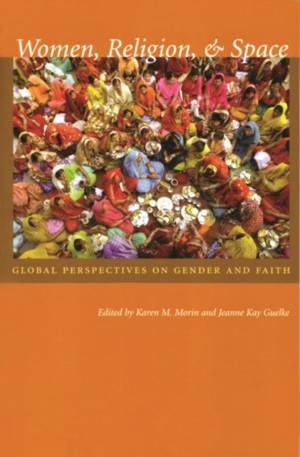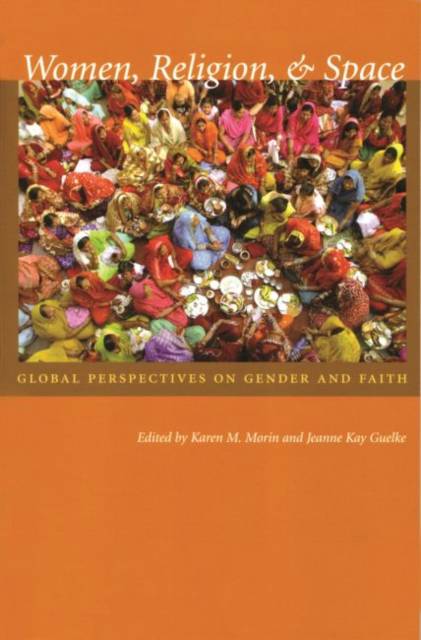
- Retrait gratuit dans votre magasin Club
- 7.000.000 titres dans notre catalogue
- Payer en toute sécurité
- Toujours un magasin près de chez vous
- Retrait gratuit dans votre magasin Club
- 7.000.0000 titres dans notre catalogue
- Payer en toute sécurité
- Toujours un magasin près de chez vous
Women, Religion, & Space
Global Perspectives on Gender and Faith
33,95 €
+ 67 points
Description
This volume studies females who practice or interact with gender norms of Christianity, Judaism, and Islam in relation to the geography of place. The book focuses on attempts by religious and secular authorities to control women's access to distinct spaces to show how religious women navigate harsh terrain and attain mobility within established institutions. The writings are grouped under three sections: "Women and Colonial Regimes," "Religion and Women's Mobility," and "New Spaces for Religious Women."
Secular, critical, and comparative viewpoints are explored, with much of the scholarship steeped in fieldwork, i.e., an orthodox district in Jerusalem, a shopping mall in Istanbul, women travelers in Pakistan, and Korean immigrant women in Los Angeles. Contributors broaden notions of space to extend beyond architecture, national borders, external and internal boundaries, and assorted identifying markers, such as race or clothing. In examining a "new" aspect of space/geography these essays promote challenge, irony, and unexpected avenues of thought. Multi-cultural and international in scope, this work makes a significant, groundbreaking contribution to the field of geography.Spécifications
Parties prenantes
- Editeur:
Contenu
- Nombre de pages :
- 248
- Langue:
- Anglais
- Collection :
Caractéristiques
- EAN:
- 9780815631163
- Date de parution :
- 01-06-07
- Format:
- Livre broché
- Format numérique:
- Trade paperback (VS)
- Dimensions :
- 160 mm x 229 mm
- Poids :
- 376 g

Les avis
Nous publions uniquement les avis qui respectent les conditions requises. Consultez nos conditions pour les avis.





